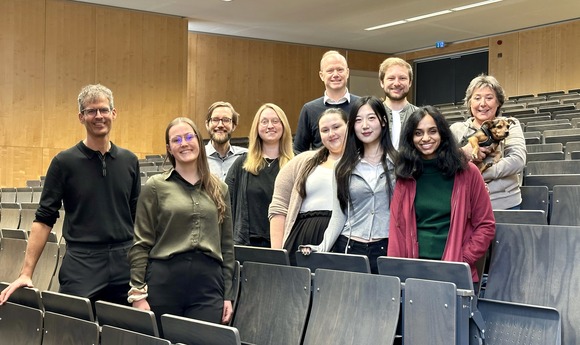International Relations (Rittberger)

Our International Relations research group addresses myriad problems and challenges in international and European politics.
Our teaching portfolio comprises introductory lectures to International Relations and Politics in the European Union as well as specialized seminars on a wide range of topics, including “Cyber Security,” “EU Integration in Times of Crises,” “IO Blame Games,” “The EU as an Actor in World Politics,” “Putin, Trump and Post-Truth: Understanding the Crisis of Liberal World Order”, and “War, Change and Order in World Politics.” Moreover, we support the project group National Model United Nations (NMUN), the most prestigious academic simulation of the United Nations, which takes place every year in New York City.
Our research covers a variety of substantive issues with a particular interest in the politics and change of international and European institutions. Our approach to inquiry is problem-oriented. We draw on those theories and methodologies that we consider most useful for the purpose of our analyses.
To find out about our most recent activities and academic work, please consult the personal websites of our team members.
Currently, we are conducting research projects on:
- Contestation of the Liberal International Order (LIO): The core institutions of the LIO are subject to increasingly intense contestation. We study the sources of this contestation with a particular focus on the endogenous, “homemade” factors which drive the contestation of the LIO and its sub-orders. In this context we investigate the contestation of international institutions through various contestation frames and contestation modes; as well as how IOs respond to their contestation. We also investigate neoliberal competition as a source of post-truth politics and challenge to the LIO and the task of critique today.
- EU integration: We study a wide variety of topics related to EU integration. We are generally interested in empirical applications of EU integration theory. For instance, we examine how EU integration has progressed against the backdrop of various crises, such as Covid-19 or the financial and so-called migration crises. We also explore transformation of the EU’s regulatory state. We trace the causes and consequences of the “Regulatory Security State“ in Europe and especially the increased business power of cybersecurity companies. We also look at the transformation of the EU’s administrative space, i.e., EU agencies and regulatory networks. We also focus on the EU as an actor in international politics, for instance, in the so-called atrocities regime or the evolution of the EU’s foreign policy towards the Israeli-Palestinian conflict.
- European blame games: We examine public responsibility attributions in the EU. In our project publications, we investigate various contested EU policies and explain the direction of public responsibility attributions as well as the strategies national governments and supranational actors employ in European blame games.

